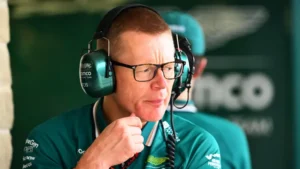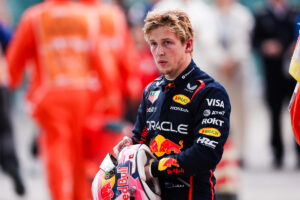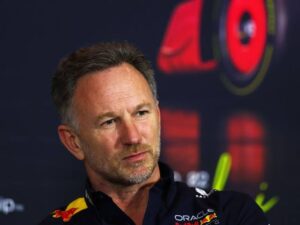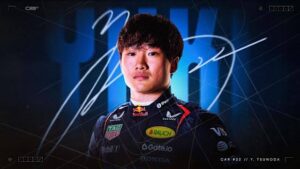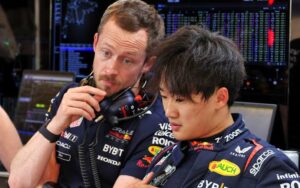Breaking news:Joe Rogan triggers woke outrage after he visits US Grand Prix garage….read more
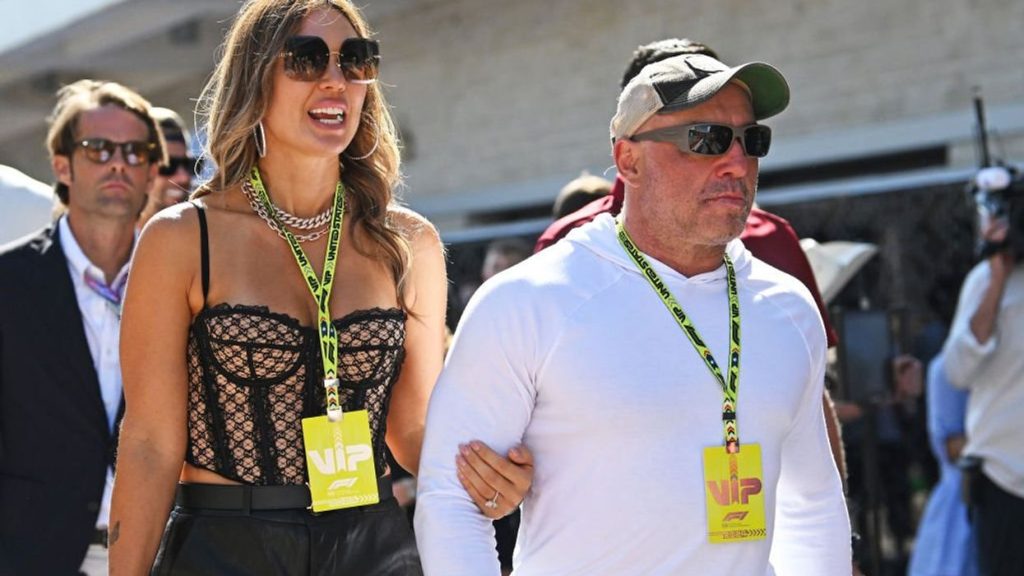
Joe Rogan triggers woke outrage after he visits US Grand Prix garage….read more
Joe Rogan recently gained behind-the-scenes access to the McLaren team garage during the 2024 United States Grand Prix in Austin, Texas, which sparked controversy among some Formula 1 fans. His appearance in a McLaren social media video drew criticism, as many fans accused the racing team of endorsing a “conspiracy theorist” known for spreading misinformation.
Rogan, a popular podcast host and UFC commentator, attended the event with his wife, Jessica Ditzel. In the video, he expressed his enthusiasm for the race, stating, “Hi, I’m Joe Rogan, and I’m here in Austin at the Formula 1 race in the McLaren garage. Pretty amazing.” He continued, “We’re very excited to be here. Super psyched for Formula 1. Let’s go!”
However, Rogan’s presence did not sit well with a segment of the F1 fanbase. Many took to social media to voice their disapproval, labeling him a “conspiracy theorist fascist” and questioning McLaren’s decision to feature him. One comment read, “Why on earth are you supporting a conspiracy theorist fascist supporting blowhard?” Another user sarcastically suggested that McLaren might as well invite controversial figures like Alex Jones.
The backlash primarily stemmed from Rogan’s history of discussing contentious topics, particularly related to politics and the COVID-19 vaccine, which has earned him both fervent supporters and staunch critics. Fans expressed concerns that McLaren’s collaboration with Rogan could be interpreted as an endorsement of his views. One user quipped, “Let’s see how much misinformation he can spread in 30 seconds.”
Another critical comment referenced former President Donald Trump’s prior appearance at the Miami Grand Prix, suggesting that McLaren was now embroiled in a “misinformation championship” alongside Trump. This mention highlighted the ongoing tension in the F1 community regarding political figures and social issues.
In recent years, Formula 1 has seen its share of political controversy. For instance, during the Miami Grand Prix, driver Lewis Hamilton spoke out against Florida’s “anti-LGBTQ measures,” expressing solidarity with the LGBTQ community. Hamilton’s remarks underscored the complex interplay between sports and political activism, illustrating how public figures in motorsports navigate these issues.
Despite the criticisms, the McLaren team achieved a commendable performance during the race, with drivers Lando Norris and Oscar Piastri finishing fourth and fifth, respectively. Ferrari’s Charles Leclerc and Carlos Sainz claimed first and second place, while Max Verstappen from Red Bull Racing rounded out the podium in third.
The incident reflects the broader societal debates surrounding public figures and their affiliations, especially in high-profile arenas like Formula 1. Rogan’s engagement with McLaren has ignited discussions about the role of sports teams in promoting or distancing themselves from controversial figures, particularly as fans increasingly demand that organizations align with their values.
Overall, while Rogan’s excitement for the race was evident, the backlash from a section of fans serves as a reminder of the delicate balance that sports teams must navigate in today’s politically charged environment. The situation emphasizes the intertwining of sports, celebrity culture, and politics, prompting further dialogue on how public figures influence fan perceptions and team reputations.

